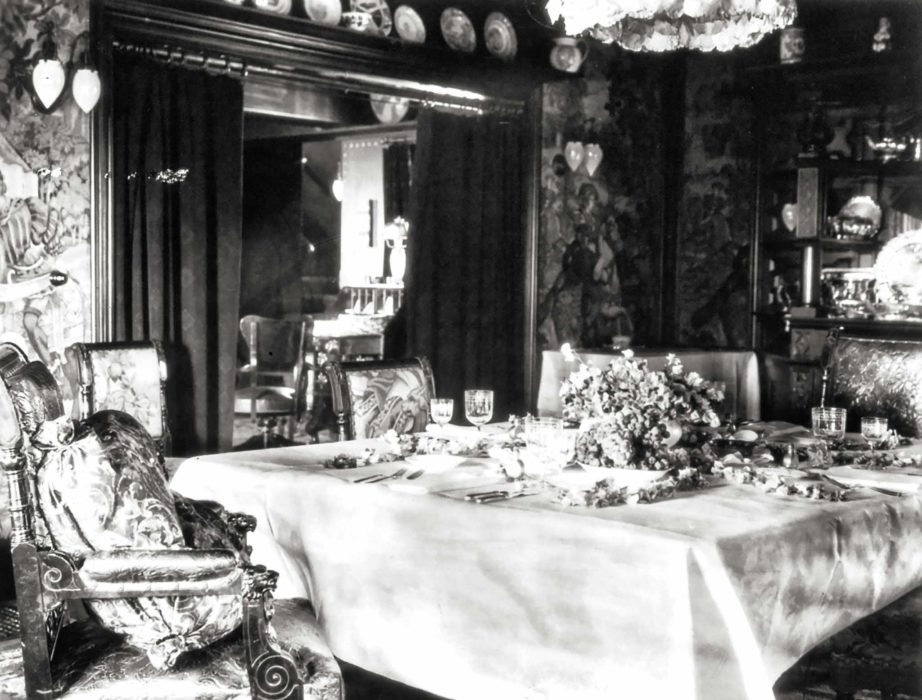ON OCTOBER 16, 1912, ‘Abdu’l-Bahá woke up in one of Phoebe Hearst’s forty rooms in her mansion in Pleasanton, California. Most of the other rooms were empty; only a few close friends and family had joined Mrs. Hearst for the duration of ‘Abdu’l-Bahá’s stay. Since George Hearst’s death twenty-one years earlier, Mrs. Hearst had been busy managing an immense mining fortune, including the Homestake gold mine in South Dakota, and the Anaconda copper mine in Butte, Montana.
‘Abdu’l-Bahá did not give lengthy talks while in Pleasanton; instead, he casually answered the questions of those around him. “How is it that the desires of some people are achieved while others are not?” someone asked. “Good intentions and sound thoughts attract confirmations,” ‘Abdu’l-Bahá answered. “The desires of human beings are endless. . . He can never find peace but through effort and resignation, so that, notwithstanding all efforts in worldly affairs, the human heart remains free and happy.” ‘Abdu’l-Bahá concluded: “He neither becomes proud on attaining wealth and position nor becomes dejected on losing them.”

The morning of October 15, 1912, ‘Abdu’l-Bahá toured Mrs. Hearst’s home and gardens. He chose a few plant specimens to take home with him and cultivate next to the resting place of his father, Bahá’u’lláh. ‘Abdu’l-Bahá enjoyed the company of Mrs. Hearst’s grandchildren that evening, saying, “In reality, children are the ornaments at the table, especially these children, who are very sweet! The hearts of children are extremely pure and simple. A person’s heart must be like a child’s, pure and free from all contamination.”
Among Phoebe Hearst’s foremost concerns was uplifting women and children. In 1886 her husband, George Hearst, was appointed to a vacant seat in the United States Senate, and two years later won it by election. The couple built a mansion in Washington, DC, at 1400 New Hampshire Avenue, NW, about ten blocks from the White House, and moved there. But Phoebe wanted nothing to do with politics — her passion was education.
Mrs. Hearst first donated to the University of California, Berkeley, to provide scholarships for women. She was the first woman to ever serve as Regent of the university, a controversial appointment at the time. She established the first free kindergarten for America’s poor, open to not only white children, but African Americans as well. She also cofounded the National Congress of Mothers, which is known today as the Parent-Teacher Association.
Through the University of California in Berkeley, Mrs. Hearst underwrote archaeological expeditions to Peru, Guatemala, rural California, and the American Midwest and Southwest. She donated artifacts from the South Pacific, Alaska, the Etruscan region of Italy, and the Philippines.

She also quietly provided financial assistance to women’s suffrage organizations, the Young Women’s Christian Association, established free libraries in mining towns, and was a leading promoter in building the Washington Monument. She even funded Green Acre, the conference center started by Sarah Farmer in Eliot, Maine. She was one of the few sources of funding that Sarah Farmer trusted would come with no strings attached.
Before leaving her estate on October 16, 1912, ‘Abdu’l-Bahá called together the servants and attendants of Hearst home. They stood in a line as he pressed two guineas in each of their hands before he left, encouraging them to be “honest and devoted to their work.”






